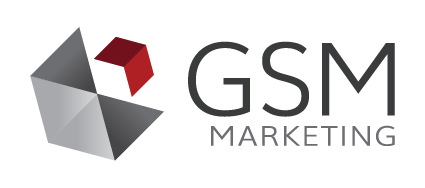By switching from a lead generation approach to a relationship approach, your marketing will naturally gravitate toward a focus on content that is more relatable, shareable, and will resonate with potential clients.
Hardly a day goes by without an invitation in your inbox to purchase a contact list to feed your next email marketing campaign. But does this kind of approach to lead generation square with a business model largely built on the quality and success of relationships and trusted introductions? Does it really work to acquire and develop “leads” this way? Does this type of campaign have any potential for a consultative, professional practice like yours? Maybe it does, but the key lies in evolving your thinking from “lead generation” to “relationship generation.”
Relationship generation challenges the content of communication at each step of the process.
Lead generation is associated with sales processes and funnels. At its core, it is transactional thinking. Convert leads, qualify prospects, and close deals. Wash, rinse, and repeat. There is nothing inherently wrong with this approach if your business model is transaction-oriented. However, if your business is built on consulting and delivering value over time, traditional lead-gen thinking can lead you to produce marketing content and assert a process that may undermine your true goal of earning long-term relationships.
Shifting to Relationship Generation Thinking
If lead generation processes focus on an immediate transaction or event, then relationship generation focuses on the longer-term goal. In other words, the “transaction event” of the new retirement plan is the end of a typical lead-driven process, but it’s at the beginning of a relationship-driven one. Both processes may produce a similar number of emails, videos, blog posts and information downloads, but relationship generation challenges the content of the communication at each step of the process.
Typical lead-gen campaigns are inwardly focused. They introduce the firm, its services and distinguishing characteristics (certifications, awards, experience). They include information about expert consulting and services and an array of plan designs and service / feature options. And, they track to a closing pitch to sell a product or service at a price.
It is about communicating what a relationship with your firm looks like and how that drives real value for the client.
The key to evolving or shifting to relationship generation thinking is all about problem solving and conveying what it means to be an expert partner. In other words, it reframes everything in terms of how it speaks to the needs, problems, and goals of the company owner or committee charged with the responsibility of starting or shepherding their company’s retirement plan. It is not about us; it is about them. It is not about plan designs; it is about helping them choose the plan design that is the best fit for them. It is translating years of experience to useful Q&A and information to help demystify technical, regulatory jargon and complexity. Ultimately, it is about creating comfort that you understand what it is like to be in their shoes and that your firm is uniquely qualified to help them. It is about communicating what a relationship with your firm looks like and how that drives real value for them.
Here are a few “Before and After” examples that may challenge your current content and inform your evolving strategy:
Transactional Content |
Relationship Content |
| Listing plan types you support |
|
| Listing the services you provide |
|
| Listing years of experience |
|
| Talking about staff credentials |
|
| Showcasing cost or price |
|
Conclusion
If you adopt this type of approach, your marketing will naturally gravitate toward a focus on content that is more relatable, shareable, and will resonate with potential clients. It translates features to benefits and, just as importantly, presents you as an expert partner committed to helping clients achieve their goals.
All of this creates creative and editorial clarity about what to include in emails and blog poses, how to script videos, and what to showcase on the homepage of your Website. Relationship generation means focusing on stories that help your prospects do their due diligence while reassuring chem they are in good hands – Yours. It is time to update the process and evolve.


